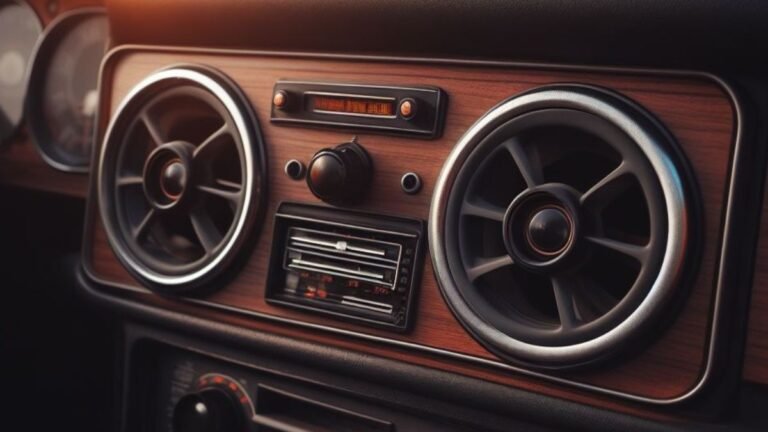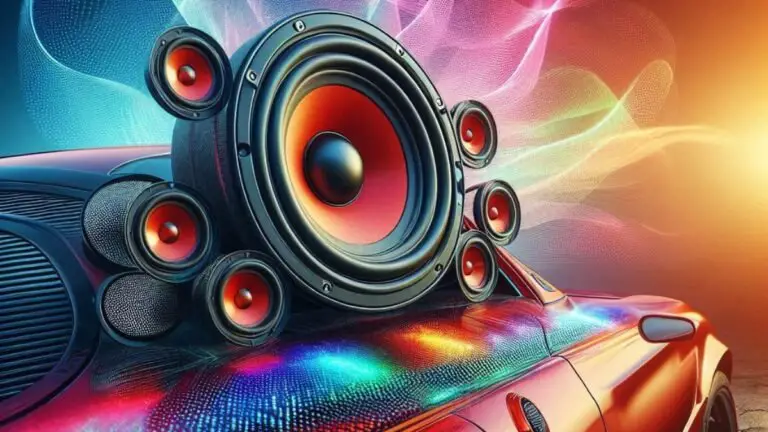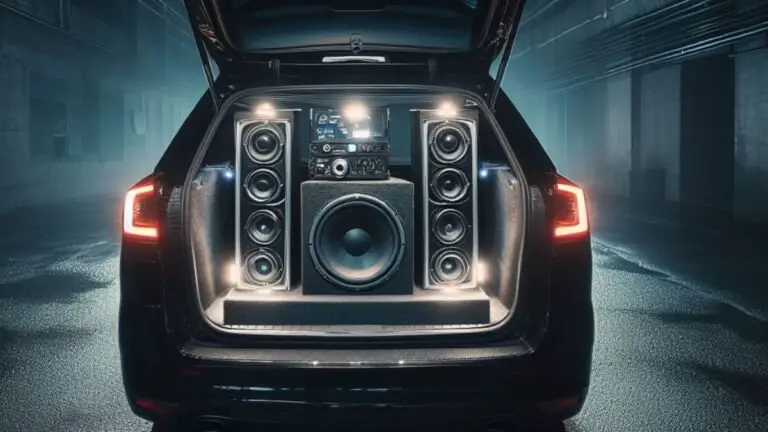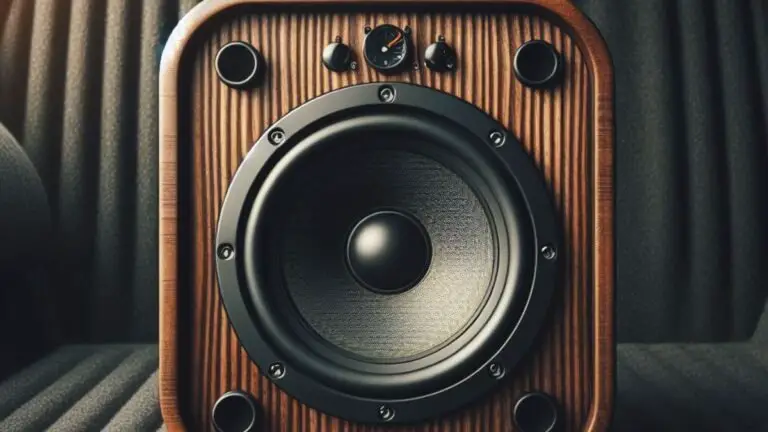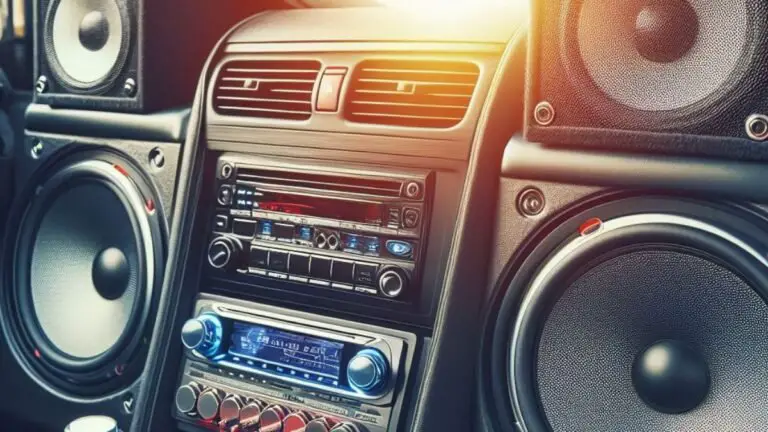How to Get Rid of Static Noise in Car Speakers?
Have you ever had an experience of suddenly getting a noise from your car speakers while listening to your favorite music during the drive? If you are disturbed by this noise and want a proper solution, you are in the right place.
We can understand that this can be very irritating listening to this noise in your music. So don’t worry! We are going to share many tricks and methods to get rid of that noise in your car speakers.
In this article, we will first be talking about the main reasons and causes of this noise and then a practical guide to remove that noise and get the same clear and loud music again.
So let’s get into the article and the question, How to Get Rid of Static Noise in Car Speakers?—let’s figure it out together.
Cause of Noise in Car Speakers
There may be many causes why your speakers have that static noise while playing audio. It can include many factors. So here are many of the main reasons below:

1. Grounding Gremlins: When the Earth Connection is Lost
Imagine the grounding of your car’s electrical system as its anchor to reality. If this connection is disturbed and enters the gremlins, then unwanted noise can get into your speakers.
If you give a solid ground connection, it’s like giving your car’s audio system a stable foundation to stand on.
2. Radio Waves Hijacking Power Lines: When Signals Collide
There are lots of radio signals playing around inside your car when you play the music. Sometimes, these playful signals can jump onto your power lines and can cause a bit of a mess in your audio system. So this can create an extra noise while playing the music in your car speakers.
3. Speaker Wires: The Silent Wrecker
The wires that carry the musical notes from your head unit to the speakers also play an important role.
If these wires are worn, damaged, or improperly shielded, they become pipes for unwanted interference. It becomes like there is a leak in your audio system.
4. Electrical Interference: When Devices Clash
If you figure out, your car is like a band where many electronic devices work together. But when these devices begin to clash, it causes interference.
Whether it’s your phone charger or another electronic gadget, their signals can disturb the flow of audio and produce noise.
5. Damaged Speakers: The Silent Screamers
Your car speakers, which are the main part of your audio system can also be a cause of the static noise. If there is even a little fault in your speakers, the static noise can be easily produced.
6. Power Overload: Too Much of a Good Thing
Indeed, speakers can be played at full volume, but gaining too much power from the system can be a point of concern.
Too much power can mess with the sound, causing distortion, and yup, you guessed it, static. It’s like you are enjoying a smooth breeze and suddenly get hit by a hurricane.
How to Get Rid of Static Noise in Car Speakers
We have a six-step guide to eliminate the static and bring back the crystal-clear soundscape you deserve.
Step #1: Track Down the Source of the Static Noise
First, you have to start to cure the problem as a detective. Is the static noise happening in all the speakers or just one?
You can check if it’s connected to certain actions, like speeding up or slowing down. If you find the place where it is coming from, then it will be easy to manage it.
Step #2: Check Your Patch Cables
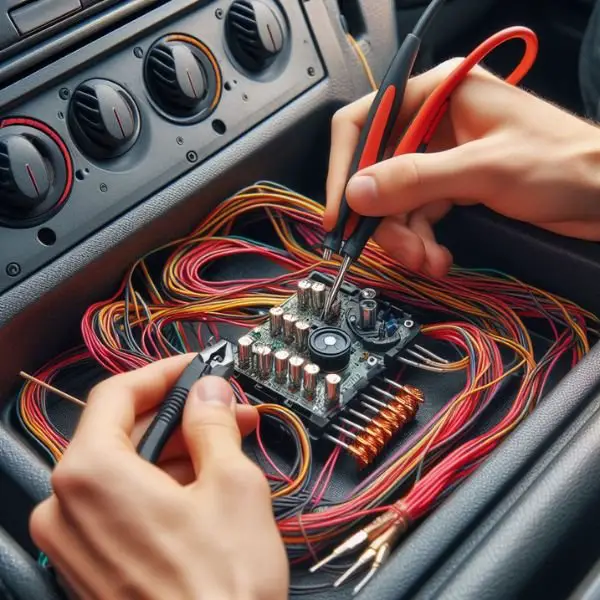
You should also check the cables if they are properly attached or if is there any fault in them. Take a good look at them for any signs of wear, fraying, or loose connections. A quick swap or fix could be all you need for a ride without any annoying noises.
Step #3: Pull the Receiver from the Dashboard While Playing a CD or Tape
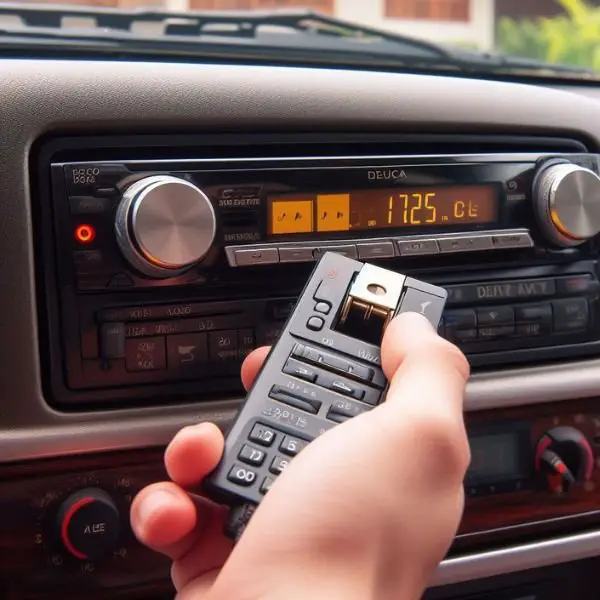
Picture your car audio system as a puzzle. Pulling the receiver (head unit) while playing a CD or tape helps rule out internal issues. If the static disappears, it might indicate a problem with the head unit itself.
Step #4: Turn Off Your Car Sound System and Disconnect Speaker Wires from the Amplifiers
Cutting the power is sometimes the best way to regain control. Turn off your car sound system, then disconnect the speaker wires from the amplifiers. If you still notice some static noise, then it can be some external issue.
Step #5: Check on Your Alternator and Car Battery
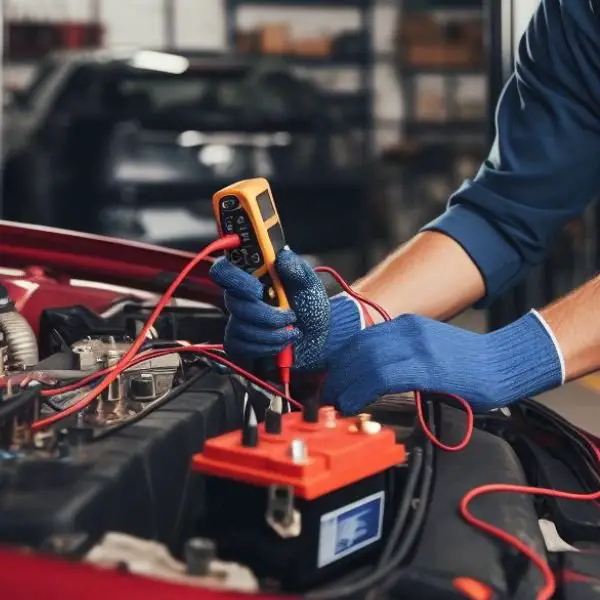
Your car’s electrical system is a dynamic duo: the alternator and battery. You have to make sure that they are in the perfect shape.
A faulty alternator can introduce noise, while a struggling battery might lead to voltage problems. A healthy electrical system often means a silent one.
Step #6: Install a Noise Filter
When all the possible ways of checking fail, it’s time to use the technology. Noise filters act as sentinels and they filter out all the signals before they reach your speakers.
You can think of installing a good one and get clear and quality audio from your car speakers.
You can also read- What Speakers Fit My Car?
Upgrading Cables and Connections
1. Elevating Your Sound: Upgrading Cables and Connections for Optimal Audio Quality
It’s not just about having a good speaker and a system, getting a quality sound also depends on many other factors.
People often forget about the important cables and connections that make up the proper network of your sound system.
You can check if all the cables are properly attached and all the connections are secured. If there is a need to upgrade them, you can go ahead.
2. Investing In High-Quality Cables and Connectors

Much like the veins and arteries in your body, cables, and connectors carry the lifeblood of your audio signals. Investing in high-quality cables can make sure you get a smooth and uninterrupted flow of sound.
Look for cables with strong construction, excellent shielding, and corrosion-resistant connectors. Brands like Monster, AudioQuest, and KnuKonceptz are renowned for producing reliable and top-notch cables.
So you must think about investing in them.
3. Ensuring Proper Insulation to Minimize Interference
In the world of audio, interference is the enemy of clarity. Proper insulation is your shield against unwanted static and disruptions.
Quality cables often come with many layers of insulation that can protect the signals from interference with external electromagnetic interference (EMI) and radio frequency interference (RFI).
Ruling Out the Amplifier
You can disconnect the patch cables from the input of the amplifier if you think the noise is coming from the amplifier.
If the noise is still coming, you can check out how the cables are arranged. If the annoying sound stops, connect the cables back to the amp but unplug them from the head unit.
If the path of the patch cables is near the power cables, you can think of changing its path to fix the issue.
If the cables are set up correctly but the issue is still there, you can try using better-quality cables with improved shielding. If that doesn’t work, you can try using a ground loop isolator to solve the problem.
Preventive Measures

- Regular Maintenance: Make it a habit to regularly take care of your car’s audio parts, like cables and connections. Like this, you can prevent any incidents that can be damaging.
- Invest in Quality Components: Choose top-notch cables, connectors, and speakers from trusted brands to reduce the chance of interference and guarantee long-lasting performance.
- Secure Ground Connections: Make sure that your car’s electrical system is properly grounded to prevent ground loop issues that can introduce static into your audio.
- Proper Installation: When you are upgrading or installing new audio components, follow manufacturer guidelines carefully to avoid issues like poor insulation or incorrect wiring.
- Mind the Environment: Be aware of your surroundings, especially in areas with potential signal interference. Drive-through environments with tall buildings or tunnels can impact radio signal reception.
FAQs
Which is the leading cause of static noise in cars?
The primary cause of static noise in cars is often interference from electronic devices, poor connections, or radio frequency interference (RFI).
Does static noise always indicate that car speakers are damaged?
No, static noise doesn’t always mean speaker damage. It can result from various factors, including issues with wiring, connections, or interference, which may not directly involve the speakers.
Which are the best car speakers?
The “best” car speakers depend on individual preferences and requirements. Popular brands include Pioneer, JBL, and Alpine. Consider factors like power handling, sensitivity, and speaker size for the best fit.
What happens if my car noise filter doesn’t filter the noise?
If your car noise filter fails to eliminate static, it’s time to reassess. Check the filter’s installation to ensure it’s connected correctly. Additionally, consider the quality of the filter; a subpar filter may not effectively combat all types of interference.
In some cases, you might need to explore alternative solutions or consult a professional for further assistance.
Conclusion
In conclusion, there can be many problems while you are driving and listening to songs that can lead to static noise. But it’s not only about getting new speakers, there are many other preferred ways.
We have provided the causes and a simple guide to fix this problem of static noise from your car speakers. You can follow these steps to cure this issue. It’s not a big deal, you might just need to make some little changes.
So hopefully, this guide on, “how to get rid of static noise in car speakers?” was very helpful for you. So make your car speaker work like bombs again and get a drive with your favorite clear audio.
Happy Journey!


